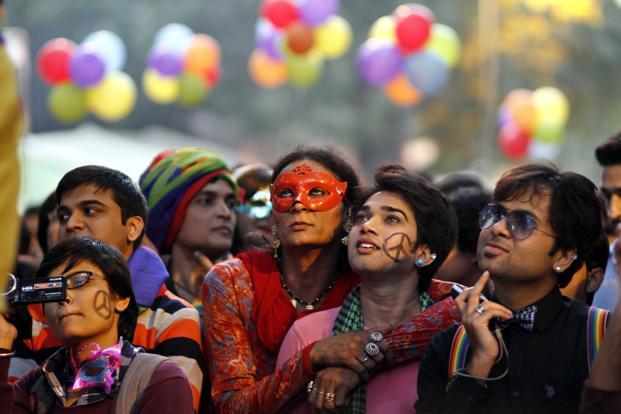Gay sex has long been taboo in conservative India, particularly in rural areas where nearly 70 percent of people live, with homophobia widespread. Some still regarding homosexuality as a ‘mental illness’.
As the Supreme Court commences a landmark hearing on homosexuality, several LGBTQ activists anxiously wait for the apex court’s decision, which had earlier upheld the validity of Section 377 of the IPC.
Section 377 refers to ‘unnatural offences’ and says whoever voluntarily has carnal intercourse against the order of nature with any man, woman or animal, shall be punished with imprisonment for life, or with imprisonment of either description for a term which may extend to 10 years, and shall also be liable to pay a fine.
The Supreme Court has said that it will examine the correctness of its 2013 verdict that had set aside the Delhi high court judgment decriminalizing gay sex. The SC will examine the fundamental right to life and to have sexual freedom. A five-judge Constitution bench headed by Chief Justice Dipak Misra allows NGO Naaz Foundation to advance arguments in these cases.
A five-judge Constitution bench headed by Chief Justice Dipak Misra on Tuesday began hearing legal arguments against Section 377. The bench will hear six petitions and interventions filed by NGO Naz Foundation, parents of queer persons and Voices Against 377, a collective of human rights groups, among others. In all, 35 individuals have come before the court, which signals a growing confidence in the community to come out in the public eye and claim their sexual orientation and gender identity.
In 2009, the Delhi high court had decriminalized gay sex, ruling that a ban on a consensual sexual relationship between gay men is a violation of fundamental rights. Thus, legalizing homosexual acts between consenting adults. However, the Supreme Court had reversed the High Court order in December 2013 and pointed out that those indulging in gay sex will be prosecuted and sentenced under Section 377.
In January, a bench of the Supreme Court, headed by Chief Justice of India Dipak Misra, referred the petitions on gay sex to a larger bench, saying social morality changes from age to age and “what is natural to one may not be natural to the other”.
Individuals who exercise their choice should never “remain in a state of fear”, the court had said. “Choice can’t be allowed to cross the boundaries of law” but pointed out that the law can’t “trample or curtail” the constitutional right to life and liberty, added the bench.

